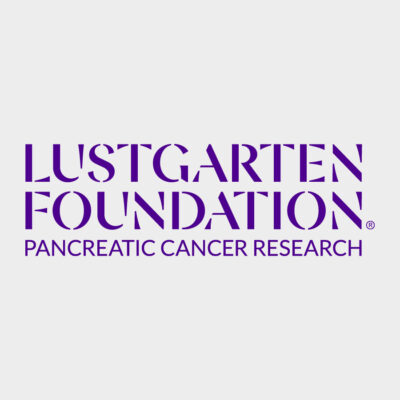When the Lustgarten Foundation was founded in 1998, fewer than 10 principal investigators across the U.S. had a primary focus on pancreatic cancer. At the time, less than .05% of federal funding was allocated to pancreatic cancer research, and few scientists had the resources to translate findings from the lab to the clinic. Since then, the foundation has become the world’s largest private funder of pancreatic cancer research, contributing nearly $250 million to the cause.
In 2022, the Lustgarten Foundation awarded nearly $1.5 million to support a Dana-Farber clinical trial that will test a promising new immunotherapy in patients with metastatic pancreatic cancer. Under the direction of James Cleary, MD, PhD, director of clinical research in the Division of Gastrointestinal Oncology, and William Freed-Pastor, MD, PhD, this phase 1 trial will test the safety and efficacy of a CD40 agonist in combination with a PD-1 inhibitor and an anti-TIGIT antibody—a novel immune checkpoint target—in patients with metastatic pancreatic cancer. Investigators hope that these three treatments together will marshal enough immune forces to induce a significant response in patients with pancreatic cancer.
“Because we know that most patients develop metastatic disease even after successful chemotherapy and that chemotherapy itself alters the immune population surrounding a tumor, it’s essential that treatments, as reflected in Dr. Cleary and Dr. Freed-Pastor’s approach, are tailored considering these alterations,” said Linda Tantawi, Lustgarten Foundation CEO. “We believe Dana-Farber’s clinical trial is critical to giving pancreatic cancer patients more time and hope for better outcomes.”
This trial is being launched on the heels of very promising lab-based studies led by Freed-Pastor. Using mouse models of pancreatic cancer, Freed-Pastor found that combining a CD40 agonist with anti-PD-1 and anti-TIGIT antibodies showed significant activity against pancreatic cancer. These drugs induced a substantial immune response, with half the models showing some sensitivity and 25% of them achieving a complete response. This is an extraordinary result for pancreatic cancer, which has proven to be largely resistant to traditional immune therapies.
“Thanks to the Lustgarten Foundation’s generosity, we are bringing a groundbreaking therapeutic approach to a group of people with few treatment options,” said Cleary. “Now, we can make these early studies really count for patients.”
For more stories about the impact of philanthropy at Dana-Farber, please visit DanaFarberImpact.org.



